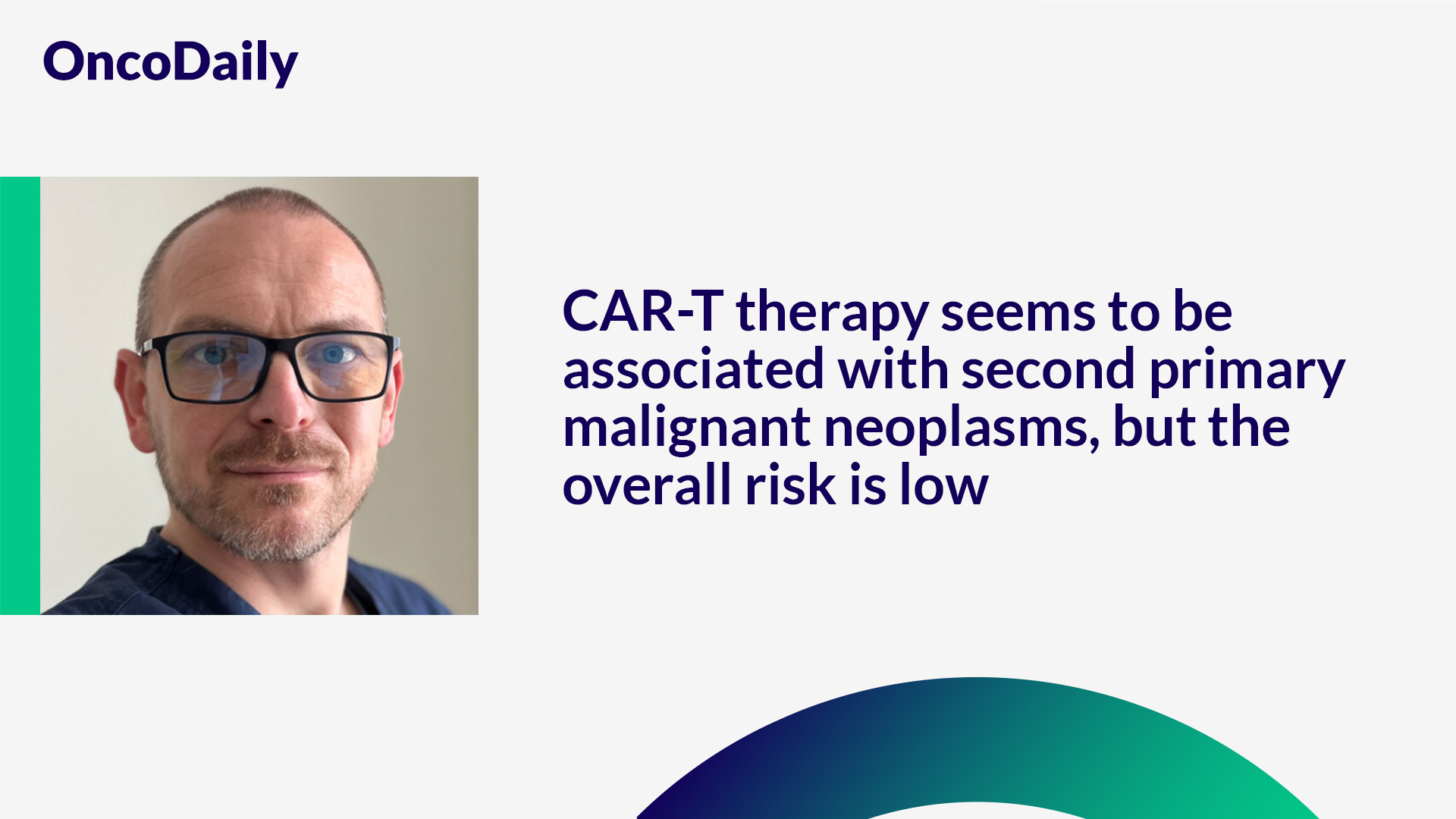Piotr Wysocki recently shared on LinkedIn:
“In a research letter published online in JAMA Oncology, Ryan Stargard et al. conducted a retrospective cohort study evaluating whether the CAR-T therapy is associated with a disproportional increase in second primary malignant neoplasms (SPMN) and T-cell malignant neoplasms (TCMN). The authors queried the FDA Adverse Event Reporting System (FAERS) postmarketing surveillance database for SPMN reports across 6 commercially available CAR-T products.
They identified 8455 AE reports from patients treated with CAR-T therapy, of which 386 reports (4.6%) described SPMN. Most SPMNs reported were myeloid neoplasms (57.0%), followed by solid tumors (29.0%). The TCMNs accounted for 2.8%.
A disproportional increase in SPMN reporting was observed in patients with refractory hematologic malignant neoplasms (HMNs) treated vs untreated with CAR-T therapy (ROR = 2.63; 95%CI 2.34-2.95).
Among 11 TCM reports after CAR-T therapy, large B-cell lymphoma was the most common indication for CAR-T (72.7%); most patients received tisagenlecleucel (54.5%) or axicabtagene ciloleucel (27.3%).
A disproportional increase in TCMN reporting was observed after CAR-T therapy (ROR=3.03; 95%CI 1.49-5.53), and this signal persisted in a sensitivity analysis. Six TCM cases were fatal.”
T-Cell Malignant Neoplasms After Chimeric Antigen Receptor T-Cell Therapy
Authors: Ryan Storgard, Kai Rejeski, Miguel-Angel Perales, Adam Goldman, Roni Shouval
JAMA Oncology – Established in 2015, JAMA Oncology is a monthly peer-reviewed medical journal published by the American Medical Association. It explores a wide array of topics within medical oncology, radiation oncology, surgical oncology, and related subspecialties.
Piotr Wysocki leads the Clinical Oncology Department at University Hospital and the Faculty of Oncology at Jagiellonian University-Medical College in Krakow, Poland.
He has supervised four PhDs, trained numerous oncology residents, and contributed to national guidelines for genitourinary and breast cancer treatment. As an advisor to the Polish Ministry of Health, he shapes the national cancer strategy.
Wysocki established early-phase clinical study units and specializes in systemic treatment for breast, gynecologic, and genitourinary cancers.His clinical expertise spans the systemic treatment of breast, gynecologic, and genitourinary cancers, with a focus on developing innovative metronomic chemotherapy-based therapies for advanced cancer patients who have undergone prior treatment.
His scientific pursuits encompass the development and utilization of Immunopheresis in solid tumor treatment and the management of immune-related adverse events. He has led over 70 international clinical studies and published extensively in cancer research. Since 2023, he has been a member of the American Society of Clinical Oncology International Affairs Committee.
Read other posts by Piotr Wysocki published on OncoDaily.
